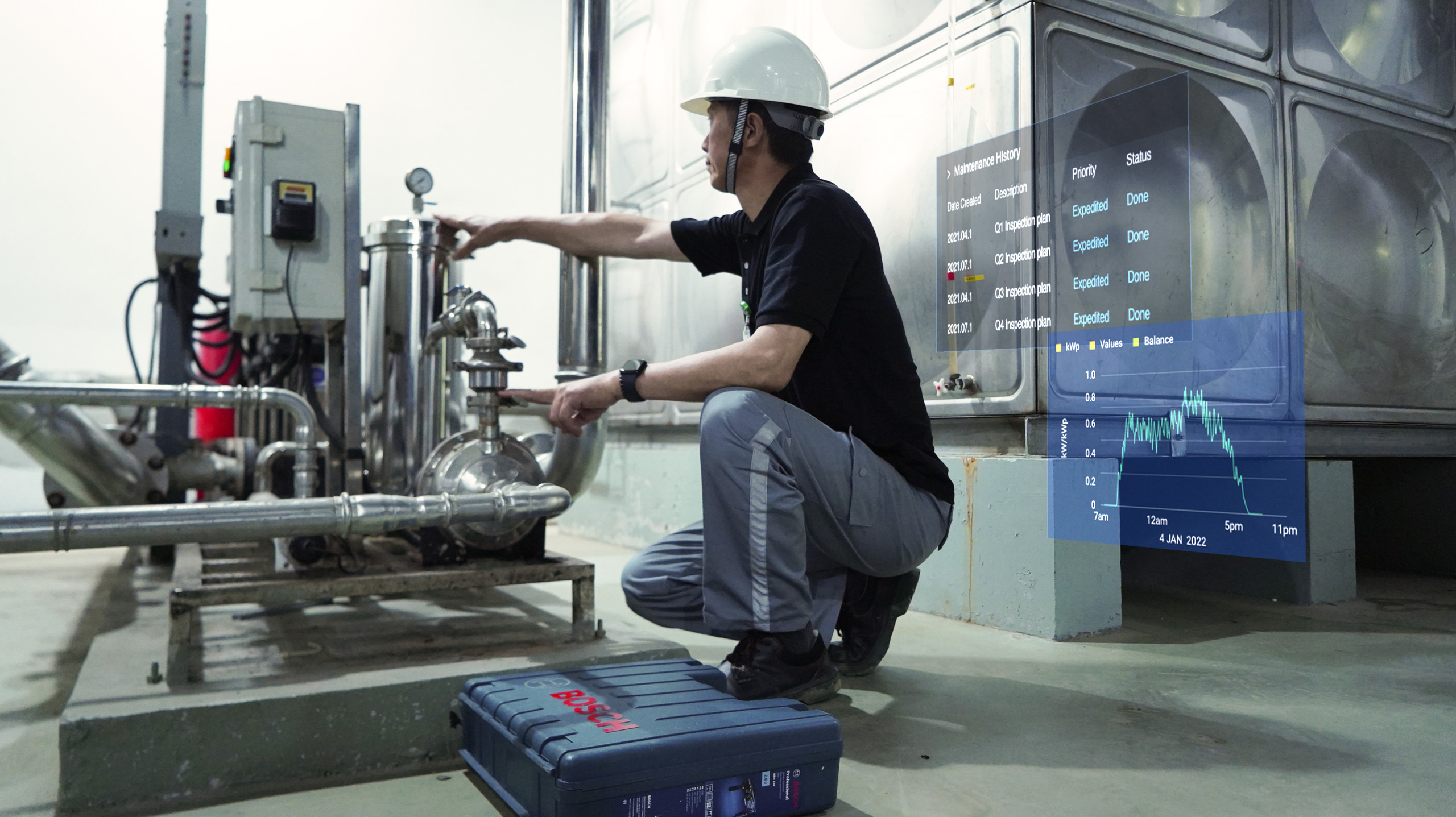As technology continues to advance, artificial intelligence (AI) is finding applications across a growing range of industries, and facility management (FM) is no exception. According to the China Research Institute of Industry, the development of smart cities is creating new opportunities for the FM sector, with IoT, big data, and AI technologies enabling smarter and more efficient services.
This article explores three key advantages of AI in facility management.
1. Predictive Intelligence Reduces Downtime and Costs
AI leverages vast amounts of historical and real-time data to predict equipment failures and maintenance needs. This predictive maintenance reduces unexpected downtime and lowers maintenance costs. For instance, FM systems equipped with machine learning algorithms can anticipate when HVAC systems may fail, enabling preemptive maintenance and uninterrupted operations.
Specifically, AI systems analyze historical and real-time sensor data to identify potential failure patterns, use deep learning models to monitor performance metrics and calculate failure probabilities. These systems also provide detailed diagnostic insights and generate automated maintenance schedules for technicians.
Technicians can prepare tools and spare parts in advance and schedule maintenance during low-impact times, minimizing business disruptions. This approach not only prevents production interruptions but also optimizes maintenance planning, reducing unnecessary work and costs.
Key benefits include enhanced equipment reliability, operational efficiency, and prolonged asset lifespan. Research highlights:
-
- Predictive maintenance programs can lower maintenance costs by 30% and eliminate up to 75% of failures.
- Predictive maintenance reduces downtime by 5-15% and improves labor productivity by 5-20%.
2. Energy Optimization for Cost Reduction
AI-driven energy management systems use smart sensors to monitor energy consumption and equipment performance in real-time. By analyzing this data, AI adjusts equipment parameters to optimize energy use, significantly improving energy efficiency, reducing waste, and lowering costs.
With continuous monitoring and updates to AI models, these systems ensure ongoing optimization of energy usage. AI-enabled energy management allows for precise control, reducing peak energy demands and electricity expenses. Notable results include:
- AI-powered energy management systems can reduce energy consumption by 15-30%.
- AI-enabled thermal management can lower data center PUE (Power Usage Effectiveness) from 1.8 to below 1.3.
- By the end of 2023, energy-efficient buildings in China covered 32.68 billion square meters, with ultra-low and near-zero energy buildings exceeding 43.7 million square meters.
3. Automation Boosts Efficiency and Reduces Labor Dependency
Automation technologies like cleaning robots, drones for building inspections, and AI-driven logistics robots enhance operational efficiency while reducing reliance on manual labor.
- Cleaning robots handle routine tasks, improving efficiency by over 50% and reducing labor requirements by 30%.
- Logistics robots optimize material delivery, increasing distribution efficiency by 40% and cutting labor costs by 20%.
- Overall, automation can reduce labor costs by 40%, minimizing human error and enhancing operational consistency.
With ongoing advancements in robotics, FM will increasingly rely on automation, with robots capable of completing complex tasks independently.
A Transformational Shift in Facility Management
AI is revolutionizing the FM industry by improving efficiency, lowering costs, and enabling smarter, automated operations. As technology evolves, FM will continue to become more intelligent, automated, and efficient, driving sustainable development for businesses and society.
